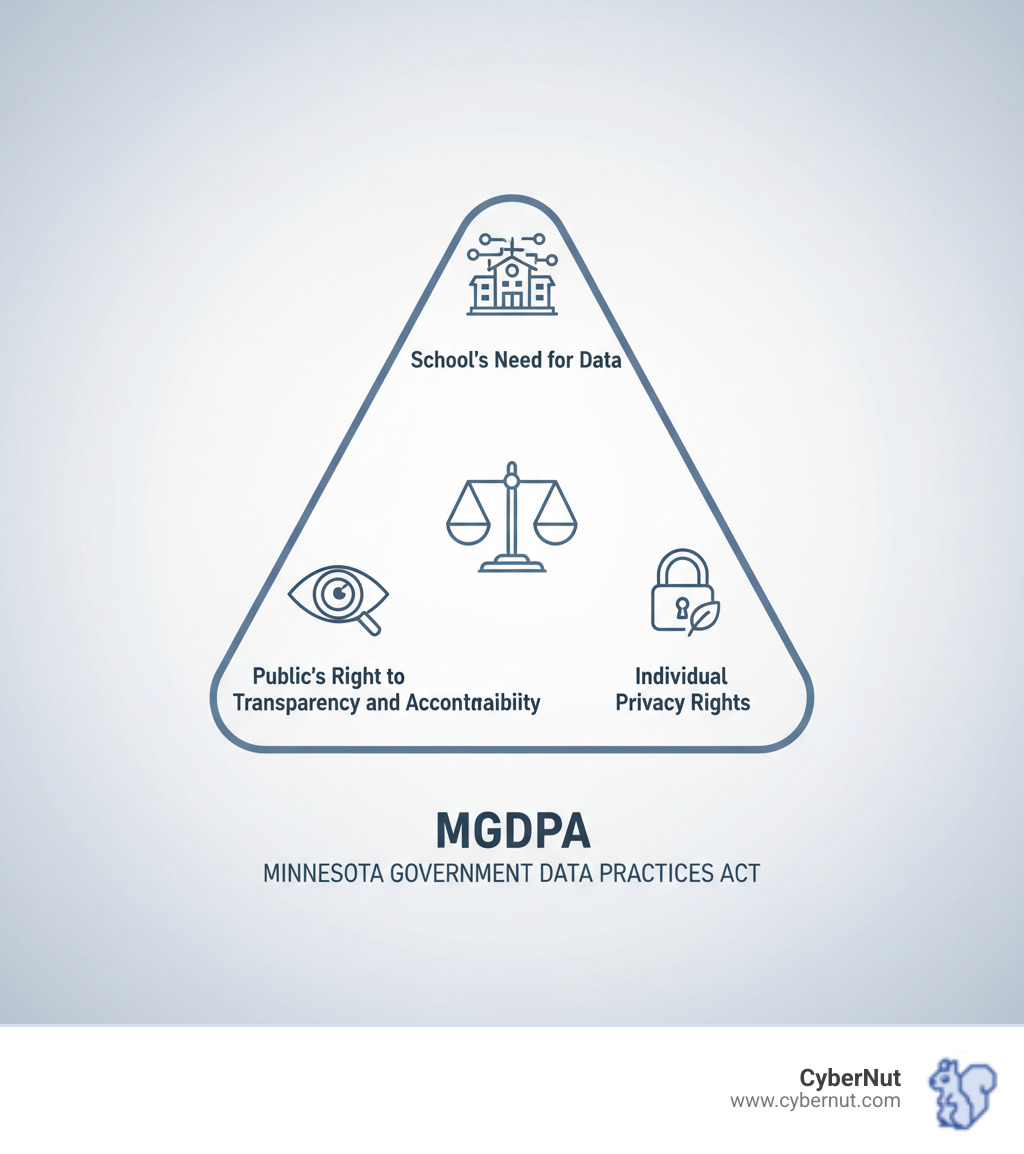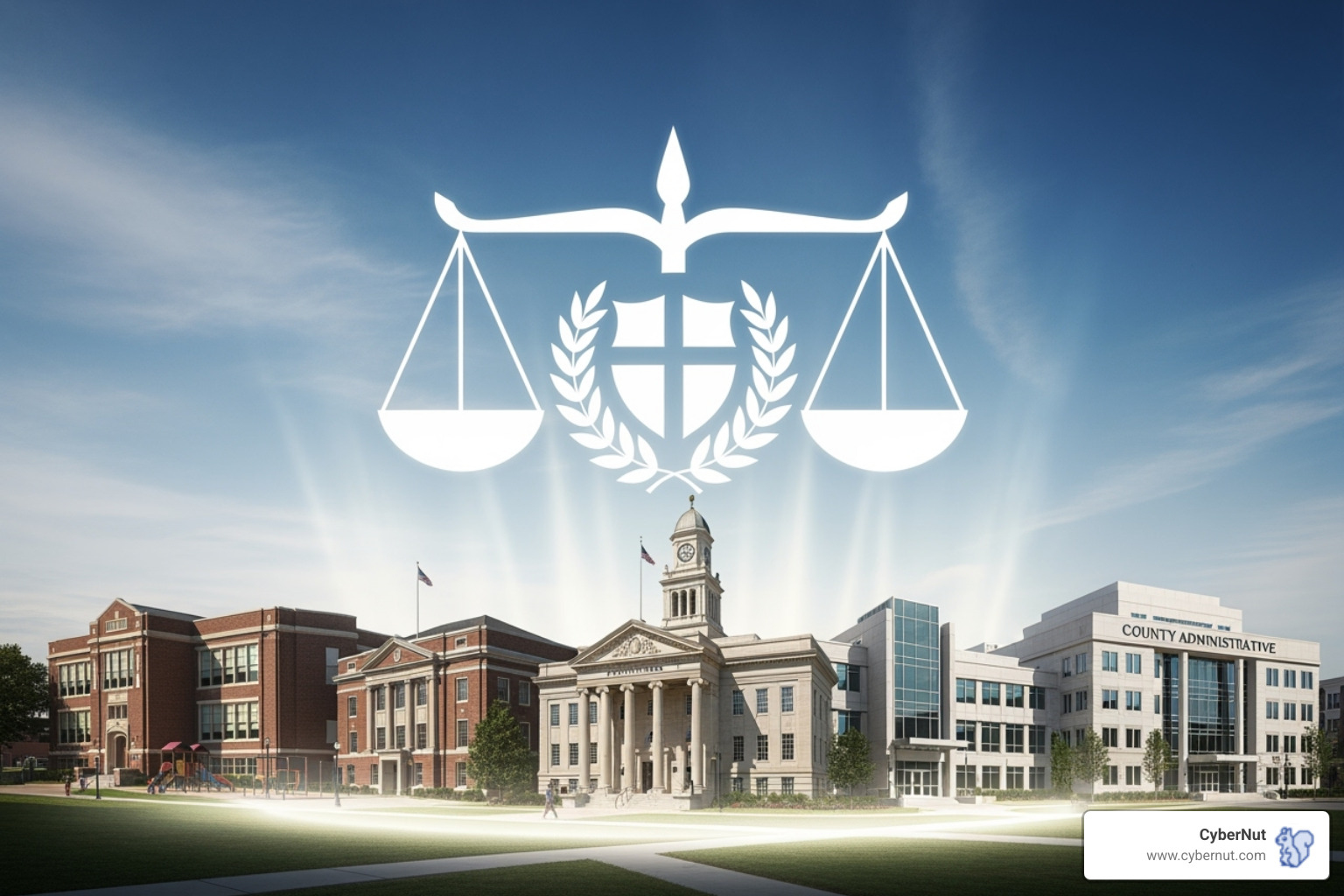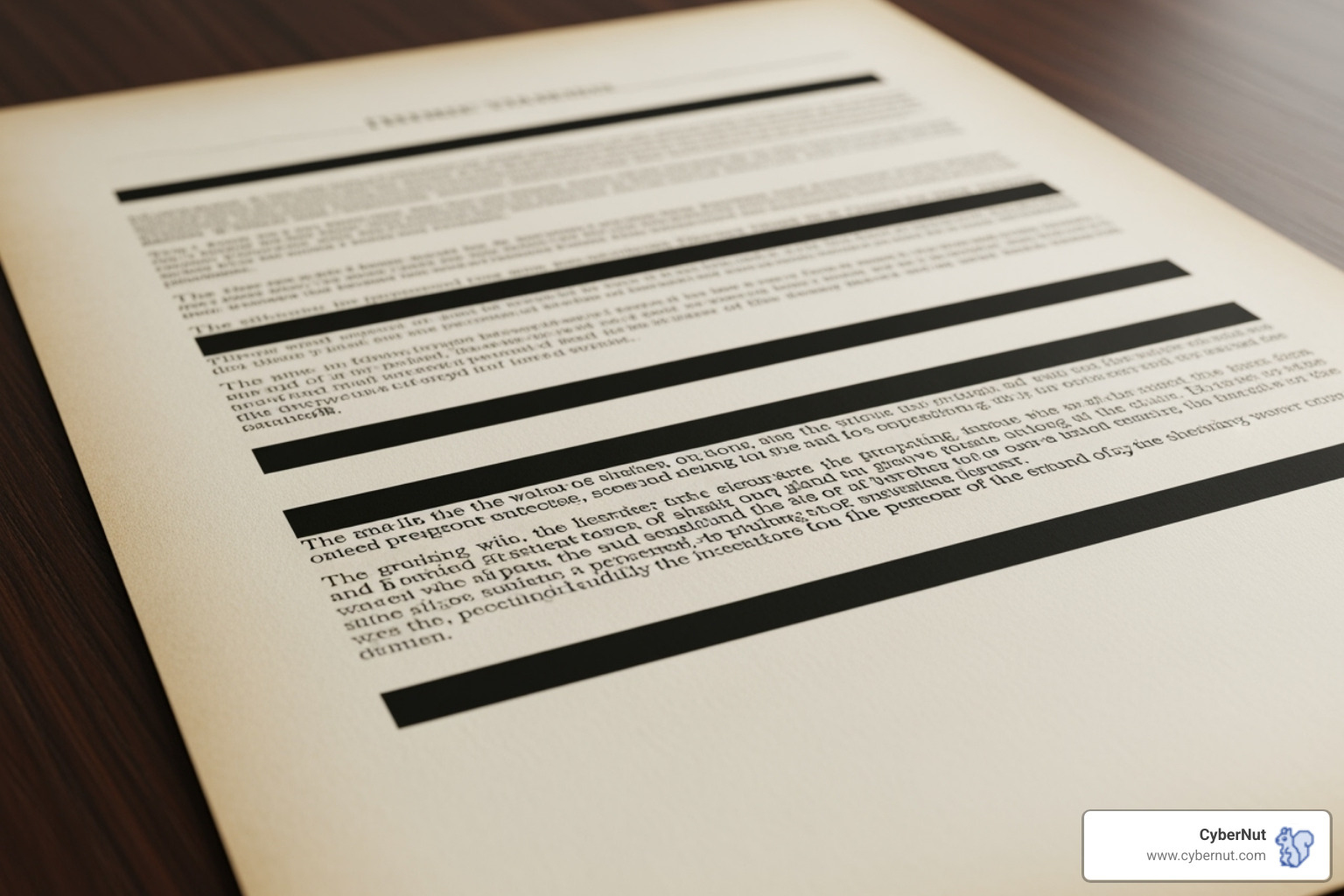
Oliver Page
Case study
October 21, 2025

The Minnesota Government Data Practices Act (MGDPA) is a state law governing how Minnesota school districts manage government data—including student records, employee files, and emails. Understanding it isn't optional; it's the law.
Quick Answer: What Minnesota Schools Need to Know
The MGDPA balances your school's need for data, the public's right to transparency, and individuals' right to privacy. School districts regularly face data requests from parents, reporters, and community members. Failing to comply can lead to lawsuits, fines, and a loss of community trust.
Compliance doesn't have to be complicated. With the right procedures, you can protect student and staff privacy while meeting your legal obligations. Since many data breaches begin with phishing attacks that trick employees, getting a phishing audit is a smart first step to understanding your school's vulnerabilities.

Quick Minnesota Government Data Practices Act (MGDPA) definitions:
Codified in Minnesota Statutes Chapter 13, the Minnesota Government Data Practices Act (MGDPA) is Minnesota's rulebook for government information. It balances government transparency with individual privacy.
The default rule is simple: all government data is presumed public unless a specific law says otherwise. This means anyone can request to see information unless it's explicitly protected. While this ensures accountability, the Act also creates classifications to protect sensitive data like student health records or employee Social Security numbers.

The MGDPA applies to nearly all Minnesota government entities, including state agencies, counties, cities, and school districts. It can also apply to private companies that perform governmental functions under contract, such as a vendor managing your student information system. The only major exceptions are the legislature and the judicial branch.
The MGDPA defines "government data" broadly as "all data collected, created, received, maintained, or disseminated by any government entity regardless of its physical form." In a school, this includes:
Essentially, if it's recorded in any form and held by the school, it's government data. You can find more details in the Data Practices Laws and Rules.
The MGDPA is built on four key principles:
The Minnesota Government Data Practices Act (MGDPA) uses a detailed classification system to determine who can access what information. The system distinguishes between data on individuals (linked to a specific person) and data not on individuals (general information like budgets).
Understanding these classifications is key to handling data requests correctly.
These classifications are defined in Minn. Stat. §13.02 and Minn. R. 1205.0200. The federal law FERPA also protects student records, and when it overlaps with the MGDPA, the law providing stronger privacy protection generally applies.
Public school data is open to anyone. Examples include:
Private school data is protected and accessible only to the data subject and authorized individuals. Examples include:
These are the most restrictive classifications for highly sensitive information.
Confidential data (on individuals) is so sensitive that even the data subject cannot access it, such as certain active criminal investigative data.
Nonpublic data (not on individuals) is not public but may be accessible to certain parties. Examples include preliminary drafts of documents or data related to ongoing negotiations.
Protected nonpublic data (not on individuals) is the most restricted category. It includes security information, active investigation data, attorney-client privileged communications, and trade secret data. Releasing this information could jeopardize school safety, legal cases, or district interests. This is why protecting against phishing attacks that target such information is so important, and a phishing audit can reveal your risks.
The Minnesota Government Data Practices Act (MGDPA) gives individuals rights to access data and places clear responsibilities on school districts to protect it and respond to requests.

When you ask an individual to provide private or confidential data about themselves, you must give them a Tennessen Warning. This notice explains:
This is required when collecting information like a parent's social security number on an enrollment form or a new employee's personal details. The best practice is to include this warning in writing directly on the collection form. Learn more at the official Tennessen Warning page.
Handling data requests correctly is crucial for legal compliance and community trust.
Every school district must designate a Responsible Authority (typically the superintendent) to oversee data practices compliance. This person, or their designee, is accountable for:
This role is vital for navigating the line between transparency and privacy. Just as IT security protects data from external threats, the Responsible Authority protects it through proper compliance. A phishing audit can help ensure your security safeguards are effective against common threats.
The Minnesota Government Data Practices Act (MGDPA) applies to everything from student information systems to email archives. While digital records are efficient, they also present unique compliance and security challenges.

Many people don't realize that work emails are government records. The MGDPA is clear: data in any "physical form, storage media, or conditions of use" is covered. This means every email sent or received by school employees for official duties is government data and subject to MGDPA classifications and requests.
Personal emails on a work account are not government data, but they are often mixed with official business. This requires a time-consuming review process for data requests, where each message must be checked and redacted if it contains non-public information.
Districts cannot charge requestors for the cost of redacting data. The sheer volume of digital records makes strong data management, clear retention policies, and robust cybersecurity essential. A successful phishing attack could expose vast amounts of private data, leading to MGDPA violations.
Violating the MGDPA carries significant consequences that are both financial and reputational.
Most violations are preventable and stem from a lack of knowledge or inadequate procedures. Proper training and clear policies are key. Since phishing is a common cause of data breaches, getting a phishing audit is a practical step toward identifying vulnerabilities and ensuring MGDPA compliance.
Navigating the Minnesota Government Data Practices Act (MGDPA) can be complex. Here are answers to some of the most common questions we hear from Minnesota school districts.
This is a common point of confusion. The key difference is scope:
When it comes to student records, both laws apply. FERPA often defines the data as private, and the MGDPA provides the framework for how Minnesota schools must handle it.
It depends on what you're asking for:
Many parents find that reviewing records in person and taking photos with their phone is a convenient and free option.
Yes, in most cases. Information about who requests public data—including your name and what you asked for—is itself considered public data. This is part of the MGDPA's core principle of government transparency, as it allows the public to see how government entities are responding to requests.
If you have privacy concerns, you can ask your district's Responsible Authority about their procedures for anonymous requests, though identification is often required when requesting data about yourself or your child.
Understanding these rules is a key part of data security. To see how well your staff can spot threats that could compromise this data, consider getting a phishing audit to identify potential vulnerabilities.
The Minnesota Government Data Practices Act (MGDPA) is the cornerstone of how Minnesota schools manage the balance between public transparency and individual privacy. It's a complex law, but compliance is achievable with the right approach.
Key takeaways for your school:
Proactive compliance builds trust with your community and protects your district from costly fines and reputational damage. At CyberNut, we know your biggest vulnerability is often the human element. A single click on a phishing email can undermine all your MGDPA procedures.
Want to know where your school stands? Get a complimentary phishing audit to see how your team responds to simulated, real-world phishing attempts. You'll gain concrete insights into your vulnerabilities and learn where to focus your training.
Cybersecurity training is central to MGDPA compliance. Learn more about cybersecurity training for schools and find how our gamified, low-touch approach can keep your staff vigilant without adding to their workload. Protect the data you're entrusted with every day.

Oliver Page

Some more Insigths


Back